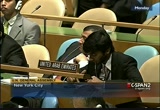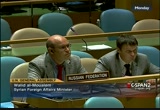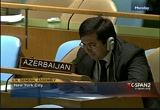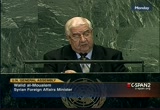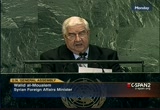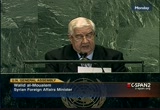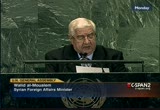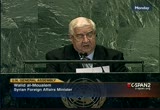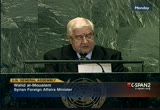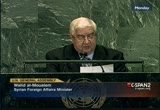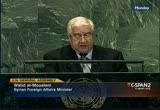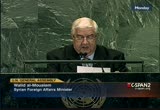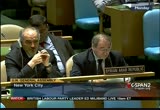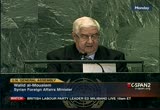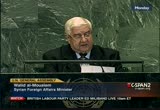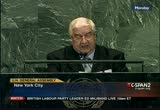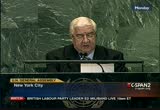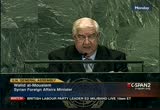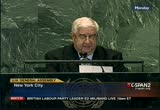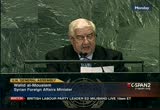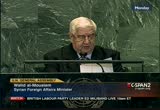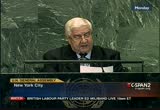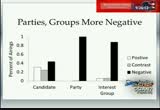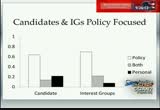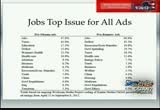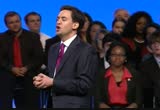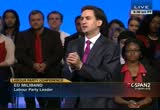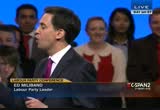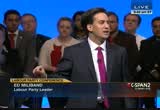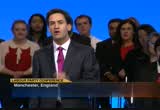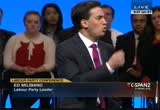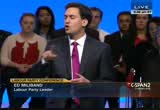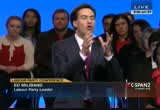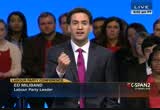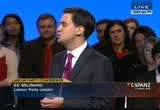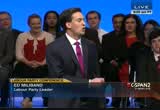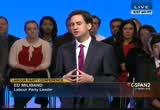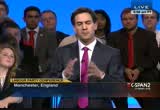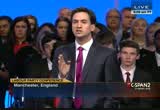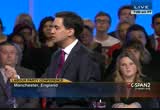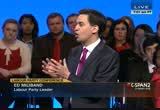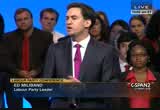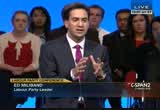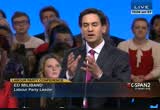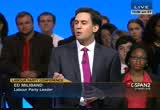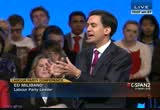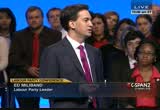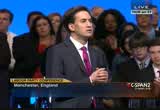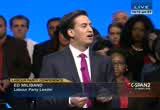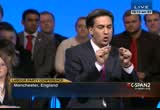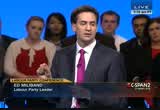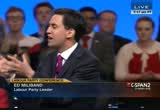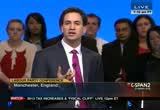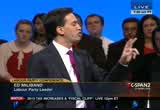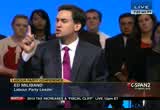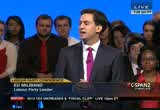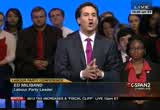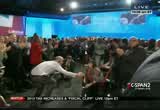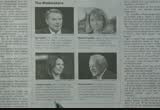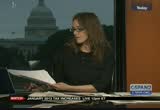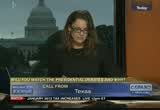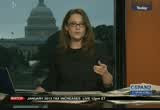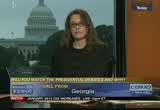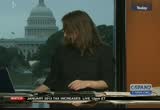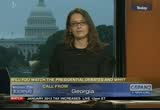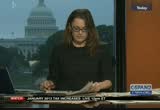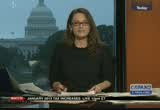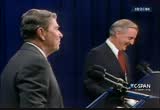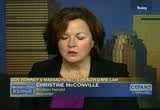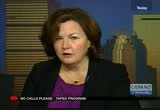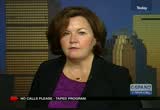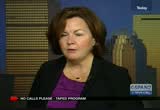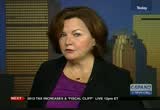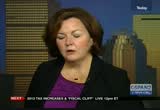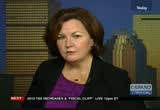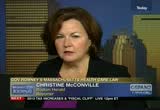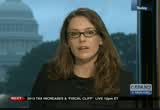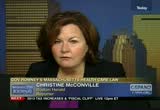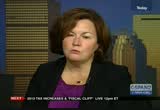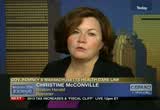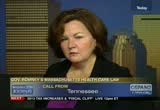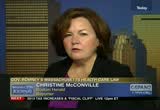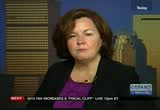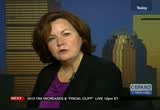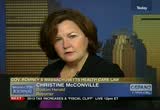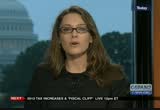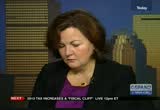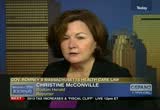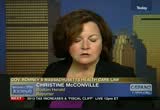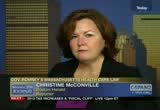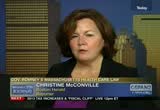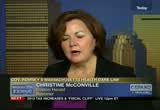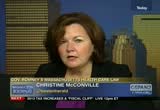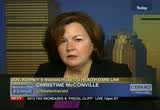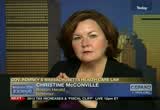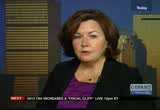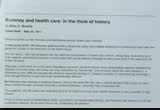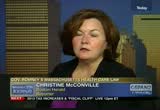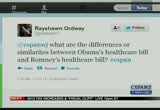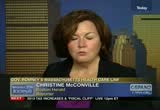tv U.S. Senate CSPAN October 2, 2012 9:00am-12:00pm EDT
9:00 am
legal basis. and under the pretext of concepts such as the responsibility to protect, drums of war are beaten, the sedition and unrest are spreading and damaging the structure of national societies. and what is worse of all, perhaps, is to see that permanent members of the security counsel who have lost wars under this excuse of combating terrorism, now supporting terrorism in my country without any regard to united nations resolutions that have established regulations and mechanisms for concerted international efforts to fight this scourge of way from political polarization and double standards. mr. president, far more than a
9:01 am
year now, my country has been facing organized terrorism that has affected our citizens and our human and scientific resources, and national establishments, and many of syria's historic and archaeological landmarks through terrorist bombings, assassinations and massacres, through looting and acts of sabotage that have horrified citizens in many parts of syria. the most recent example of this is a terrorist bombing that recently took place in the master on -- in damascus on 26/9/2012. a terrorist group with the name of jabhat al-nosrah, one of al qaeda arms, took responsibility for this attack. and it is no surprise that the secret accounts has failed to condemn this and other terrorist bombings, because some of its members support them.
9:02 am
this terrorism which is externally supported is accompanied by unprecedented media provocation, based on igniting religious extremism started by well-known states in the region. these states facilitate the sale of arms, money and fighters for the borders of some neighboring countries. these states also turned a blind eye to the activities of terrorist groups crossing their borders. and while others provide access, material and logistical support from their territories for such groups. these facts lead me to question whether this international consensus by our states on combating terrorism was serious, or was it just merely ink on paper? in what context can we classify
9:03 am
the explicit request by the united states to the armed terrorist groups not to surrender their arms as a response to amnesty decrees and decisions issued by the syrian leadership? we also wonder to what extent the statements made by qatar, saudi arabia, turkey, the united states, and others, to what extent do these statement which clearly insight and support terrorism in syria with money, weapons and foreign fighters, to what extent are these in line with the international responsibilities of these countries in combating terrorism. one of the ironies that we face today is represented by encouraging extremist in countries within and outside our region to go to the borders of syria, and enter the country, to
9:04 am
carry out terrorist acts under the name of jihad, in collaboration with terrorists from the inside. this is a fact that has been confirmed by reports by both international and arab observers before them. at this very day, and as result of this terrorism, syria has lost thousands of martyrs from along its military ranks, and civilians, as a price for its efforts to defend the integrity of the syrian state and its citizens in the face of this global terrorist campaign. mr. president, the syrian government calls for dialogue at the beginning of the events in my country, but this call did not find any positive response from most opposition parties.
9:05 am
moreover, my government responded positively throughout the crisis to each and every sincere initiative that aims to find a peaceful solution, a solution that is based on national dialogue among syrians, that rejects external manipulation, and that stops the shedding of syrian blood and preserving syria and its future. based on this principle position, and despite the syrian leadership's conviction that there are no sincere intentions among some regional and international parties that push for the escalation of the syrian crisis, which fuel its fire and heat it by forcing all attempts for dialogue, and insisting on creating a state of instability to ensure the need for foreign interference. despite all this, syria cooperated with the arab
9:06 am
observers mission, and the subsequent international initiatives linked to the work of the united nations special envoy kofi annan. out of principle, syria received the united nations supervision is seen in syria, and furnish it with all facilities needed to enable it to deploy in syria in an unprecedented record time. the syrian leadership also announced its full commitment to the implementation of the six-point plan presented by mr. a non-con and started practical implication of this provision. also welcomed the geneva community that stressed the need for the implementation of this provision. however, the behavior of the armed groups which sought to exploit the syrian government's commitment to the plan and to the geneva communiqué in order
9:07 am
to make gains on the ground in an area of their presence added to that statement issued by some western and arab countries. all of these have exposed the actors and states working to thwart all these initiatives. syria has welcomed the appointment of mr. lakhdar brahimi as the special representative of the secretary-general to succeed mr. annan. it has stressed its willingness to fully cooperate with them on the principles agreed upon by the international community. particularly the six-point plan. and the geneva communiqué. i would like to take that the success of any international efforts requires him in addition to the commitment of the syrian government, a commitment by the state supporting armed groups in my country, and at the forefront
9:08 am
of which comes turkey, saudi arabia, qatar, libya and others, to stop arming, funding, training and harboring armed terrorist groups, and to encourage dialogue and renounce violence instead. mr. president, for more than one year now, syria has been saying that my country is witnessing a two-sided problem. the first side is linked to the need for political, economic and social reforms demanded by the public. the second side is the exploitation of those social needs and demands for objectives that are completely different from the demands of the syrian people and their interests. and using these peaceful demands as a vehicle for armed groups to
9:09 am
sow sedition and undermine security in my country. i referred to this in my speech from this very podium last year. i am instructed to carry that the states in syria has taken serious and important reform measures that were culminated in a new constitution that embraces political pluralism, and was adopted by a popular referendum, upon which parliamentary elections were held which were open to multiple political parties, and now i tell you that syria is continuing to work with the patriotic elements in the opposition to build a new and pluralistic syria that meets the aspirations of its people. syria, at the same time, is determined to carry out its duties and to protect its people from jihadists and takfiri
9:10 am
terrorism, which armed terrorist groups are using to spread chaos and create sedition among syrians and threaten their peaceful coexistence. mr. president, we heard from this podium, and on other platforms, some calls that were made by those who are ignorant of the fact or maybe ignoring them, or maybe contributing to their spread, calling on the president of the syrian arab republic to step down. this is blatant interference in the domestic affairs of syria, and the unity of its people and its sovereignty. the syrian people and only the syrian people are authorized to choose their own future and the form of their state, which accommodates all groups throughout the entire spectrum of the syrian people, including
9:11 am
those who were deceived and misled. the syrian people are the ones to choose their leadership through the ballot box, which is the most important means of democracy and democratic expression. if some countries would interfere into internal affairs of syria are proud of their democracy and the freedom of choice of their people, then it is better for those countries to support us in our democratic course, and leave the syrian people to choose their leadership through the elections whose form has been tested by the new constitution and relevant legislation. and then the ballot box will have the final say. i say to those countries enough illusions, and i invite a national opposition to work together to stop the shedding of syrian blood, and to set up the dialogue table and participate
9:12 am
in defining the present and the future of syria. we do not wager on any party or factor apart from the syrian people, who are uniformly determined to reject all forms of foreign interference in their domestic affairs, and to defeat the advocates of the project of sectarianism, extremism and terrorism, because the bond is very strong in my country between the policies of the state and the aspirations of the people. mr. president, despite everything i've described on what my country is living through, we still believe in a political solution as an essential way out of this crisis. and from this platform i call for the following. first, i call on all parties and political groups, inside and outside syria, to engage in a
9:13 am
constructive dialogue under the umbrella of the homeland. the doors of syria, as is her heart, are open to anyone who wants constructive dialogue and to achieve this, i call all countries represented in the general assembly to exert pressure to end the violence in my country through putting an end to the arming, financing, harboring and training of armed terrorist groups. second, the results of this national dialogue, after agreement by all parties shall be the map in the future way of the country and establishing a syria that is more pluralistic and democratic. mr. president, these events in syria have led to growing humanitarian needs in several key sectors in areas affected by
9:14 am
the terrorism of takfiri groups. this has led to the worsening of the living conditions of syrian citizens. as well, my government is working hard to meet the basic needs of citizens who have been forced by the violence of armed groups to flee their homes. some have sought to fabricate a refugee crisis in neighboring countries through inciting armed groups to intimidate syrian civilians in border areas and forcing them to flee to neighboring countries. there they are either accommodated in military training bases, or in what resembles places of detention, amid arid or rugged regions, and exploit their plight to gather
9:15 am
aid that is mostly spent on things which have nothing to do with humanitarian objectives. i appeal from this podium to the syrian citizens to return to their towns and villages where the syrian state will guarantee their safe return and their precious lives away from in human conditions, from the in human conditions they suffer in these camps. at this point allow me to ask a legitimate question about the credibility of those who claim to care for providing humanitarian access as a response to the needs of the syrians, and to question the consistency of these claims with a policy of tightening economic
9:16 am
sanctions that are badly affecting the living conditions of these same citizens. whose interest those imposing the sanctions claim to serve. how can imposing sanctions on the banking, health and transport sectors be consistent with caring for the best interest of the syrians? i also wonder if the legitimate public demands of our citizens, to which are syrian leadership has responded transparently insincerely, whether these demands can justify their use i some as an excuse to continue providing all forms of military, financial and media support to those killing innocent industry, including journalists, doctors, university professors and even religious dignitaries? or is this simply another
9:17 am
practical interpretation of the concept of creative chaos which only contributes to strengthening western hegemony on mediterranean countries, and which serve only israel's expansionist interests? mr. president, what is happening in my country must not lead us to lose her basic focus, which is palestine and the golan heights. therefore, the syrian arab republic confirms its adherents to her natural right to restore the full occupied syrian golan up to the june 6, 1967, borders. series refusal and rejection of all measures taken by israel, the occupying power, to change the natural geographic and -- aspects of the goal line, and include violation of the
9:18 am
relevance of the security counsel, particularly resolution 497 of the year 1981. syria renews its support for the legitimate calls upon the international community to recognize a free and independent palestinian state on the palestinian territories occupied in 1967. the failure of efforts to achieve a just and comprehensive peace in the middle east on the basis of the international terms of reference endorsed by the international community as a basis for peace between palestinians and israelis is due, as are the windows, to the unilateral positions and actions of israel, especially israel's insistence on continuing its settlement policy and its division of the requirements of peace. mr. president, my country renews its call upon the international
9:19 am
community to work on freeing the middle east of all weapons of mass destruction. in this context, we recall the initiative presented at the end of 2003 during its membership of security counsel by syria, as we call upon the counsel to adopt series stresses that evacuation of all weapons of mass destruction will not be achieved without making israel the only nuclear power in the region, by joining the nuclear nonproliferation treaty, and placing its nuclear facilities under the inspection regime of the international atomic energy agency. at the same time we emphasize on the stipulations of the nuclear nonproliferation treaty which we can give rights of all states to acquire nuclear technology for peaceful purposes. mr. president, the insistence of
9:20 am
the united states and countries of the european union and others to impose unilateral economic measures violate, violates the regulations of international law on the principles of free trade, and raises questions about the legality and morality of such practices. based on this, we call for lifting the embargo imposed on cuba by the united states for decades. we also renew our call for lifting and stopping all unilateral coercive measures imposed on the peoples of other countries, such as venezuela, belarus, iran, syria and the democratic people's republic of korea. mr. president, our aspiration to achieve a positive reform of the
9:21 am
international organization stems from our desire to find a world based on justice, security and prosperity for all the peoples of the world, away from the colonial tendencies -- hegemonic tendencies of some countries that seek to exploit the united nations to achieve their own interests at the expense of other countries. we hope that the united nations can take the people of the world to a better future that fulfills their aspirations for life, coexistence, development and food sufficiency, and away from all forms of tension, confrontation and wars, pursuant to what the united nations charter stipulates and its principles and purposes which seek to preserve the sovereignty of states and equality among them in rights and duties.
9:22 am
i thank you, mr. president. [applause] >> spent coming up in about 40 minutes will go live to england for labor party leader ed miliband's address to party members. they're holding their annual autumn conference in manchester. is expected highlight the differences between his party's platform and the policies of the conservative liberal democrat coalition. which is curly governing uk. that is live at 10 a.m. eastern here on c-span2. after that at noon eastern the urban institute on host a discussion on tax increases that are set to take place in january. the end of the bush income tax cuts the payroll tax holiday and hikes on investment income. speakers include douglas holtz-eakin. that will be live here on c-span2 starting again at 12 in eastern. >> a look now at campaign spending and political ads in
9:23 am
the presidential election. from the annenberg public policy center at the university of pennsylvania, this is about 45 minutes. >> i am the editorial communications director at the center for responsive politics, and we are here to talk about the challenges posted journals by dark money and their mysterious donors. erika fowler is joining me on the panel. she is from the west the medium project achieves an assistant professor of government at western university. director of the media project which tracks and analyzes all political ads aired on broadcast television in real-time during elections. she specialized in political communication and she'll be talking about some of the ads we are seeing outside groups and the nature of them. i'll go and talk, go on and talk a little bit more about what we
9:24 am
are seeing in the nature of third party ads, third party dark money or shadow money ads, and how reporters can try to report on this and what could be done if congress or some of the agencies want to make this a little easier for us. and then kathleen will be with us to talk about what they are finding about presidential money, third party presidential money, and how much of it is being spent on deceptive ads. so first we will go with erika. >> thank you. it's a pleasure to be here today. i'm not going to spend too much time talking about how we do what we do but i'm happy to entertain those questions or talk more at greater detail if you have questions at the end. for those of you who are not aware, i hope you're all aware but if you're not aware, the
9:25 am
project has taken over what was wisconsin advertising project and in the wake of citizens united and the incomplete capacity of the sec reporting, even in the face of the sec development we will have more to say about the sec very soon. the wesley immediate project took over for wisconsin in trying to develop both a definitive database of political advertising for scholars and policymakers but also enhanced transparency during elections in real-time. so because we're talking transparency i would be remiss in not telling you to our sponsors are. so just a few to be very clear we do want to be very open and transparent, our funders come we are very, very grateful to the knight foundation and the rockefeller and others for allowing us to do this work in real-time. so as i'm sure most of you know, anyone with enough money can go
9:26 am
directly to them and purchase data on advertising. our funders have graciously provided us with enough funds that we cannot approach is that number also do a lot of real-time coding ourselves and then provide all of that information in aggregate form, freely to the public on our website in real-time. so just to very pretty tell you a little bit about what it is that we do, we take all of the frequency data which has of course down to the market level on which program and approximately how much, where ads are airing and a price and how much they cost. we take that data plus the actual videos of the ads and we have student voters in each of the three partner institutions log onto an online database. watch each of the ads and answer 253 for each of these ads. so what is the tone? is it in the -- one of the
9:27 am
issues that are mentioned in the at, what are the personal traits are adjectives, and whether the ad is about primer about policy, primary about personal characteristics or some sort of mix of both. we track major politicians mentioned so we can tell you how often obama is mentioned in acts that are not in the presidential race and how often is mentioned favorably versus unfavorably. we look at whether or not ads mention party affiliation, magic words, a host of additional characteristics. and because we're also analyzing the e.u., not just the reports come we are also now starting in 2010 we started to look at musical characteristics, voiceovers and other emotional appeals. reels of access to the full range of the wisconsin advertising database, and so that is what the leverage in which we can put into context this election cycle compared to those dating back to 2000. we'll have lots and lots more to say this year. if you're not already on our
9:28 am
distribution list i encourage you to get in touch and/or you can ascribe directly for website and/or our twitter feed. were also, this cycle also tracking you to the ads will have much more to say about that, too. we have three releases yet to come in october, so i encourage you to sign up. before doctors little bit about ads i did want to just very briefly what it into context, so next slide, please. when we looked in 2010 in the first cycle path of citizens guided we wanted to look at the percent of interest, as a percentage of all ads on the air, how much interest groups were involved. you will see these are senate and house races dating back to 2000 at least on the house side, the 2010 level of interest group activity was not at historic high, even within the range for which our data goes.
9:29 am
you see actually in 2000 interest groups were more involved than they were in 2010. that idc has changed dramatically this year. next slide. so what we're seeing in the 2012 presidential race is a vast, vast increase on the groups i. so groups of this cycle make up 30% of all the ads on the air. they are not present. just disproportionately on the republican side, next slide. but it's also i think key and very important, it's important to talk about spending, but one thing i keep reiterating come and everyone may talk to you, the discrepancy in terms of the candidate ad for the interest group ads but if you look at the number of parents can use the candidates have aired over 3300 power -- hours, just compared to 150 ads. and yet you see that dramatic
9:30 am
disparity in the cost of the ad. that tells you a little bit about how much stations are charging interest groups for those ads compared to the candidate's ads. next slide. to give you sort of a graphical picture come in here we are only comparing outside ads candidates. we are excluding the party ads for a moment, but you can see 2012 compared to 2008, and you see the real increase, sharp increase in interest group activity. and we have broken it down by party picks are you see on the gop side almost 52% of all airings are coming from pro-romney sponsor coming from outside interest groups. next slide. if we just look at title i c. fours, and it will be much more today about disclosure, if we just look at 501(c)(4)'s, over half of the interest group ads are coming from those groups. that give you a sense of the magnitude and you were looking just at the general election
9:31 am
period actually slightly after that, after the last time frame, april 26 through september 8. this is a list of the top spenders on the republican side. we'll have more to say next week about ad specifically where there's been, what you're spending on and what they are saying. next slide. the other thing that we're seeing this cycle, every year as it would always likes to say that this is the most negative election ever. we are using more cautious about that, in fact some of the early releases that we did in 20 is a hold on, it is exactly the same at the end of 2010 we saw an increase and 2010 was more negative than any other cycle we have tracked back to 2000. in 2012, we're also seeing continuing to see that increase in negativity, and so you can see that pro-obama spot use here
9:32 am
attack the weakest in indiscriminate contrast and. attacks. if i only mention my book that would be an attack it because i mentioned both myself and the opponent out of the a contrast and. if we just look at the peer attack, it went from 24% attack in 2008 to 46% attack, peer attack ads this cycle. if we compare pro-mccain to probe ronde, they went from 41% to 72% this cycle. next slide, please. >> and this is also true as it was in 2010 that the interest groups are perhaps not surprising the most negative employers in election. they are not the most negative. that is reserved for the party sponsored ads but there are many -- just not that many on your. candidates are roughly dividing their time between positive and contrast ads but erring more
9:33 am
attack ads than anything else. any other important thing is if we look at the comparison, next slide, please. that we can attribute the rise in negativity solely to interest groups. certainly it's largely in part due to interest groups. that's in part because of interest groups are starting to use few contest bots as well but it's also the case of silicate candidate sponsored areas that. attack ads that increase from 2008. so it's not solely due to the interest groups that we are seeing rising level of negativity. next slide. we also look at the extent to which an ad focuses primary on policy, personal characteristics or some mix of both. and this is a change from 2010. in 2010 it was interest group ads that were far more focus on policy than any other player, and these are just attack ads i
9:34 am
should mention. so any ads that are attack, what extent are they a personal attack versus a policy attack? candidates are more likely to air the personal attacks but you will see the candidates and interest group for just about equally likely with interest groups slightly more likely to air a policy attack. so again this is a change from 2010 when interest groups were far more likely to focus on policy in their attacks. next slide, please. and then we're also of course also of course track in the top issues for all ads. so this is was her most recent released the identity a little bit more and we'll have more to say later, but certainly one of the key things we're seeing here is much more heavy concentration on the gop side him on a few key issues and that's actually driven very much by the gop interest group. more than six in 10 gop interest group ads focus on jobs and deficit. romney is a let's focus on the
9:35 am
deficit. he has spent most is how i'm talking about jobs, and on health care and taxes in about one out of every to as progressive democrats have a much wider spread on issues that they are discussing dick so i will leave it there for now. [applause] >> thanks, eric. okay, so shadow money. this is a subset of t outside money we are seeing coming into the elections. and we are seeing much more of this time around, these are the 501(c), especially 501(c)(4) groups that are increasing active in politics an increasingly active on the airwaves. first a word about, the center for responsive politics. what we do it in a summit with us is we slice and dice campaign
9:36 am
finance and lobbying information in ways that hopefully make it more accessible and usable and easier to interpret for both journalists and the public. we've been trying to get at this dark money, shadow money this year, and you know, the danger for journalists and for us, for the public is, you know, it's very, very difficult to get at it, take it its donors and exactly what's going on. but if we don't we're only getting part of the story. and probably not that big a part. why don't you go to the first slide? so what these groups are supposed to disclose, like other groups, is the amount of money they spend on independent expenditures, which of those ads that say vote for, vote against some candidate. and electioneering communications which is a horrible phrase, but those are the issue ads that run within 60
9:37 am
days of a general election, or 30 days of the primary. those two things are what, even these groups have to report to the federal election commission. so looking just at that spending that was reported to the federal election commission, even though everybody talks about super pacs and super pacs have been probably the thing we get more questions on than anything else at the center this year, but this chart shows even in 2010 the virtue that citizens united was in effect, 501(c)(4) groups, not disclosing groups, report -- >> we will leave this program at this point. you can see it in its entirety at our website. live now to manchester, england, for an address and labor party leader ed miliband. it started just a couple minutes ago. >> they put a meter up to britain and showed up the best
9:38 am
of ourselves. we succeeded because of our outstanding troops from our outstanding trips to many of them were drafted in at the last minute. and let us today pay tribute to the bravery, their courage, their sacrifice in afghanistan all all around the world. [applause] and let's say to them, and let's say to them, just as you do our duty by us, in the most courageous way possible, so we will always do our duty by you, both in military and in civilian life. [applause] we succeeded, we succeeded because of our outstanding police. and let us in the city of
9:39 am
manchester show our appreciation's for what the extraordinary police men and women of our country do for our country. [applause] and how we succeeded, and this is a real lesson. we succeeded because of a group of individuals, a group of individuals who saw the odds against london's bid, and thought, nevermind. we are going to pioneer the bid for london. we're going to fight for the bid for london. we're going to win the bid for london, to our very own -- [inaudible] [applause] but, you know, what?
9:40 am
you know what what, friends, we succeeded with one reason more than of the. we succeeded because of us. we succeeded because of us. us, the british people. us the british people, welcome the athletes from abroad, who cheered them on, and found ourselves talking to each other each morning about what happened at the olympics the night before in a way we haven't talked to each other before. we succeeded because we came together as a country. we worked together as a country. we join together as a country. that's why we achieved more than we imagined possible. you know, i'll tell you this. i can't remember a time like this in the whole history of my lifetime. i can't remember a time like it, that sense of a country united, that sense of a country that felt it was together.
9:41 am
that is this. this labour party believes in. -- that is a spirit this labour party believes in. [applause] but i may not remember that spirit. but that spirit has echoed through british history. you know, 140 years ago, 140 years ago to the year another leader of the opposition gave a speech. it was in the free trade hall that he used to stand opposite this building. the radisson now by the way. [laughter] his name was benjamin israeli. he was a tourist, but don't let that put you off for just a minute. his speech took over three hours to deliver. and -- don't worry, don't worry.
9:42 am
[laughter] and he drank to hold bottles of brandy while delivering this. [laughter] it is absolutely true. now look, i just want to say i know a speech that long would probably kill you, and the brandy would definitely kill me. but -- [inaudible] it was a vision of britain to a vision of britain where patriotism, loyalty, dedication to the common cause, went to the fanciful and nobody feels left out. it was a vision of britain coming together to overcome the challenges we face. disarray they called it one nation. one nation. we heard the phrase again at the country came together to defeat fascism. and we heard it again as athletes, labour government rebuild britain after the war. [applause]
9:43 am
friends, i didn't complete of the labour party to reinvent the world of disraeli, but if you believe in that spirit. that spirit of one nation. one nation, a country where everyone has a stake. one nation, a country where prosperity is fairly shared. one nation where we have a shared destiny, a sense of shared endeavor, and a common life that we laid together. that is my vision of one nation. that is my vision of britain. that is the britain we must become. [applause] and here is the genius of one nation. it doesn't just tell us the country we can be.
9:44 am
it tells us how we must rebuild. we won the war because we were one nation. we built the piece it has labour government and conservative governments understood we needed to be one nation. every time britain has faced its greatest challenge, we have only, through the storm because we are one nation. but too often governments have forgotten that lesson. with 1 million young people out of work, we just can't succeed as a country. with a gap between rich and poor growing wider and wider, we just can't succeed as a country. with millions of people feeling that hard work and effort are not worth, we just cannot succeed as a country. and with sony people having been told for so long that the only way to get on these to be on your own, defend for yourself. we just can't succeed as a country. yes, friends --
9:45 am
[applause] yes, friends -- we came through the storm to overcome the challenges that we face. we must rediscover that spirit. that spirit of british people never forgot. that spirit of one nation, one nation, a country where everyone plays their part. a country we rebuild together. [applause] so here is the big question. of today. who can make us one nation? who can bring britain together? what about the tories? what about the tories. >> no. spent i didn't hear you? what about the tories? >> no. spent let me explain why.
9:46 am
let me explain why. i want to talk very directly to those who voted for david cam and the last election. i understand why you voted for him. i understand why you turned away from the last labour government. this government took power in difficult economic times. it was a country still coming to terms with a financial crisis, a financial crisis that has afflicted every country around the world. i understand why you were willing to give david cameron the benefit of the doubt. but i think we've had long enough to make a judgment. long enough to make a judgment. because they turned to recover into the longest double dip recession since the war. because there are more people looking for work for longer than at any time since the last time there was a conservative government. [applause]
9:47 am
and here's the other thing. what about borrowing? borrowing you think they said was their number one priority. this year, borrowing is rising, not falling. let me just say that again. arlene, the thing they said was the most important policy, the reason they were elected is rising, not falling -- falling. not because there hasn't been paying and tax rises and cuts affecting every family in this country. not because they didn't want to cut borrowing, they did. not because your services are getting worse, they are. not because if you stop the economy growing, that will leave more people out of work, claiming benefits, not paying taxes. businesses struggle, so they are not paying taxes. and as a result, borrowing goes
9:48 am
up. borrowing, not to invest in hospitals and education and hospitals, but want to keep people idle. so the next time you heard a conservative say to you, labour would increase borrowing, just remember, it is this a government that is increasing borrowing this year. [applause] so what have we seen? we have seen recession, higher unemployment, higher borrowing. i don't think that's what people were promised. now look, there will be some people who say, and this as an important argument, a single people say there is a short term pain, but it is worth it for the long-term gain. but i'm afraid the opposite is
9:49 am
true. you see, the longer you have low growth in our country, the bigger the death toll becomes for the future, and the bigger our problem will be in the future. the longer a young person is out of work, that's not just that for the prospects now. it's bad for the prospect the whole of the rest of their life. into a small business goes under during the recession, it can't just get up and running again during a recovery. so when david cameron says to you, well, let's just carry on as we are and wait for something to turn up, don't believe him. don't believe him. if the medicine is not working, you change the medicine. and i'll tell you -- [applause] and i'll tell you what else to change.
9:50 am
you change the doctor, too, and that is what we need to do. [applause] now, now look around you, now look around you. you know, the problem is the british people are paying the price of this government's failure. you are going to the petrol station and not filling up your tank because you can't afford it. your tax credits are being touched because the government says it can't afford it. you are frail mom and dad are not getting the care they need because the government says it can't afford it. but there are some things this government can afford. there are a lot of things. what do they think as this most difficult economic time will get us out of our difficulties? what do they choose as their
9:51 am
priority? a tax cut for millionaires. a tax cut for millionaires. next april, david cameron will be writing a check for 40,000 pounds to each and every millionaire in britain. not just for one year, but each and every year. that is more than the average person earns in a whole year. at the same time, as they are imposing a tax on pensioners next april, friends, we, the labour party, that country knows it is wrong. it is wrong what they are doing. it shows their priority. and here's the worst part. david cameron isn't just writing the check. he's receiving one. [laughter] he is going to be getting the millionaires tax cut. [applause]
9:52 am
so next week, maybe mr. cameron can tell us how much is he awarding himself in tax cut, how much is that tax cut he is awarding himself for a job i guess he thinks is a job well done. how many of his other capital colleagues have checks in the post from the tax cut? and how can he justify this unfairness in britain's 2012? [applause] and, of course, let's not forget, this tax cut wouldn't be happening without nick clegg and the liberal democrats. [applause] isn't it shameful, isn't it shameful that the party that supported, that implemented the people's budget of 1909, lloyd
9:53 am
george's budget, is supporting the millionaires budget of 2012? [applause] so that's the reality in britain today. it's a rebate for the topic it's a ripoff to everybody else. it's a recovery for the top. it's a recession for everybody else. this prime minister said we are all in it together. don't let him cover tell us again we are all in this together. [applause] and friends, i say this, i say this, it can't be a one nation prime minister if he raise taxes on ordinary families and cut taxes for millionaires. you can't be a one nation prime minister if all you do is seek to divide the country. divide the country between north and south, public and private, those who can work and those who can't work.
9:54 am
and you can't be a one nation prime minister if your chief whip insults the great police officers of our country by calling them -- [applause] >> there's one thing that this government might claim to be good at. and that's competence. because after all, they think they are born to rule. so maybe they would be good at it. have you ever seen a more incompetent, hopeless, out of
9:55 am
touch, you turn, pledge breaking, make it up as you go a long, miserable shower than this primary to an as a government? -- than this prime minister and his government? [applause] there's more. there's more. there's more. not quite disraeli. there's more. [laughter] >> what have we had? we've had a caravan tactic would have churches tax. we've had the granny tax. we've had panic at the pump.
9:56 am
we've had dinner for donors. we've had country suffers with rebekah brooks. [laughter] he even rode the horse. [laughter] he sent the text, he sent the text, remember? lol. [laughter] and now what do we have? we have the minister murdock becoming the minister for the national health service. [booing] we have an international development secretary. she says she doesn't the league in international development. [laughter] and get this. we've got a party chairman who writes books about how to be the recession under a false name. [laughter] i'm not making this up. i'm really not making this a. i mean, i have to say if i was chairman of the conservative party i would have a false name, too. [applause] there it is.
9:57 am
but here's my favorite one at all. just one more. is my favorite one of all. even a bloke, and i think they call them lordy deal, it went to see the prime minister. he made an appointment during the last reshuffle in order to resign. but david cameron was too incompetent to notice that he wanted to resign so lord hill is still in the government. they are so useless they can't even resign properly. [applause] so look, they are not going to build one nation. so it's up to us. let me say to you, one nation is not the way for avoiding the difficult decision but it's a
9:58 am
way of making the difficult decisions. i've just got to be very clear about this and about what faces the next labour government. you see, i think it is incredibly important that to be one nation we must show compassion and support for all those who cannot work. particularly the disabled men and women of our country. [applause] but in order to do so, those who can work have a responsibility to do so. we can't leave people languishing out of work for our one year, two-year, three years. we've got a responsibility to help them, and they've got a responsibility to take the work that is offered. [applause] to be one nation, to be one nation we've got to give much greater dignity to our elderly population.
9:59 am
because, you know -- [applause] you will have to tackle, we are going to have to tackle that care crisis that faces so many families up and down this country. living longer should be one of the great virtues of the 21st century. but friends, in order to be able to afford to do that we will have to work longer. have a later retirement age than we do now. to be one nation, we've got to live within our means. and borrowing is getting worse, not better. it means there will be many katz that this government made that we just won't be able to reverse. even though we would like to. and that's why we said in this parliament that we put jobs over pay and public sector. and in the next parliament, we will have tough settlement for the public services. that will make life harder for those who use them and harder for those who work for them. but here's the big difference between a one nation government led by need, and this current government, those with the
10:00 am
broadest shoulders will always bear the greatest burden. [applause] i would never, i would never cut taxes for millionaires and raise them on ordinary families. that is wrong. that is not being one nation. and here's the other thing you're i would never accept an economy where the gap between rich and poor just grows wider and wider. ..
10:01 am
[applause] we must be the party of sound just as much as a policy of law. [applause] and we must be the party as those of poverty. there is no future for this party has the party of one interest of our country. [applause] it is right to move on from new labour because new labour despite its great achievements silence about the responsibilities and continued
10:02 am
about the account devotee vv two -- accountability of those with power. in one nation, responsibility goes all the way to the top of the party. the rich of the party showed the responsibility to the rest of our country. [applause] and i have got news for the powerful interest in our country. in one nation no interest rupert murdoch is too powerful to be held to account. [applause] so we must be a one nation party to become a one nation government, to build a one nation. and here is how we must take
10:03 am
steps to do that. we need a one nation economy and the biggest mission of the next government is to sort out our banks. sort them out once and for all. [applause] not just to prevent another crisis but to do what hasn't been done in decades necessary to enable us to pay our way in the world. we need banks in a country that serves as banks. [applause] think about the small business i talked about earlier on. he wanted to be double to go to his bank, will get his manager in the eyes and know that he is working for him. instead he found a bank more
10:04 am
10:05 am
i say we can't carry on as we are. we can't carry on as we are, two nations, not one. the banks and the rest of britain. we must have a one nation banking system as part of a one nation economy. [applause] next, we need an education system for all of the young people. [applause] to be a one nation economy, we've got to use all the talent of all of our young people. it's not just socially right, it's absolutely essential for our economy for the future. i remember i had a stock school. the kids on the exam who were
10:06 am
academic could go to university in the world with just open up to them like it did for me. but think about all those kids who have talent and ability, great talent and ability. school just didn't offer them enough. it was true 25 years ago, and it's even more true today. just think in your mind's eye above the 14-year-old today. today is a school day. think about that 14-year-old, already bored at school, maybe not going to school. now of course the need to get back to school and their parents need to get them back to school. they can't afford to drift to the right with no qualification and britain can't afford for them to do it either.
10:07 am
but we can't just say to that 14-year-old just put in the work, because we would be failing them, too. many times our party has been focused on getting 50% of young people and to universities. i believe that was right. but now it's time to put the provision on the 50% who do not go to universities. [applause] here is the choice i want to offer to that 14-year-old. math to 18 because when we get into the curriculum, but courses that engage them and are relevant to them, experience with employers and then culminating at the age of 18 for a new gold standard qualifications so they know when they are taking the exam they
10:08 am
have a gold standard for the qualification on a new technical baccalaureate. a qualification -- [applause] liquification to be proud of. you know, we've got to change the culture of this country, friends. we can't be a country where qualifications are seen as second class. they are a route to apprentice ships and jobs. they can be as valuable for our young persons as a university degree. [applause] we've got to change the culture in this country and their needs to be the route to apprenticeships. but let me tell you there are a lot of problems. only one in three large employers in britain actually
10:09 am
offered an apprentice -- apprentice ship. in the public sector the situation is far, far worse. that is of a culture in the country. that is about a culture of the country which hasn't been dealt with for decades. it is the task of the next government to do that, so the public sector is going to have to step up to the plate and understand that we can't be two nations. the public sector contract for the private sector, the next labour government will ensure that every private sector contract will only be awarded to a company that trains the next generation with apprenticeships. [applause]
10:10 am
because when the public sector is having a contract with a private sector company it's not just buying goods and services, it must be about building one nation together. public and private sectors joining together to do it. [applause] and we need -- and we need a new deal. you get control of the money for training, you set the standards as you have asked for, but you have the responsibility to make sure the training happens. any one nation, free riding has workers from that due.
10:11 am
[applause] now think about this provision of education. education to the age of 18 with qualifications, and then think about the vision from the conservatives. michael goves. he wanted to bring back -- [laughter] okay i get the point. michael, who wanted to bring back the two-tier academic exams. i remember was like. i remember the whole one group of young people. we are not going back to those days. [applause]
10:12 am
michael goves who had contempt for vocational qualifications and some of the best vocational qualifications our country has. and michael, who has notng to say about education. so in education there is a choice of two futures. education for the narrow elite with the conservative and one nation still system as part of a one nation economy with the next labor government. [applause] to be a one nation economy, we have to make life just that easier for the producers and
10:13 am
that much harder for the producers. i think people know what i'm talking about. [applause] the businesses tell me the pressure for the investors can have their own view. they want to plan one year, two years, ten years ahead but have to publish their accounts every three months in line with the wishes of the best of the business. we will end that and the companies can take a long-term productive view for the country. [applause] companies are far more easily bought and sold than in any other country. the hedge funds and the
10:14 am
speculators can jump in for a quick profit. they are not acting in the interest of some or the nation. they are just in it. you will change it coming in here is the thing, ladies and gentlemen, i invite the british business in the next labor government. we found the rules of the game, so we have a one nation business model as part of a one nation economy for our country. [applause] and banks and education and the rules of the game for the compy. one nation gives an urgent call of change. but one nation isn't just about the things we need to change it is about the things we need to conserve as well.
10:15 am
saying the government makes me a conservative, the way of life matters. my vision of one nation is an outward looking country, a country that engages in europe and the rest of the world. [applause] ibm incredibly proud to be the son of immigrant parents and i am incredibly proud of the multi-ethnic diverse britain that won the olympic bid, and it saw that kind of country here in britain. [applause] but to make that vision work, to make that decision work for the country, innovation must work for all and not just for some. and so too often we have overlooked those concerns, dismiss them to easily.
10:16 am
here is one approach that is going to be different both in the last labor government and of this conservative government. you see, we need to secure our borders and competent management of the system. but here is the big change in the way that our economy works. immigration has significant economic benefits, but not when it is used to undercut workers already here and exploit people in india. [applause] now, the last labor government didn't do enough to address these concerns and never will. so the next labour government will crack down on employment that don't pay the minimum wage.
10:17 am
[applause] we will stop recruitment agencies to how your people from overseas, and we will end the shady practices in the construction industry and elsewhere of gangbusters. [applause] so we need a system of immigration that looks at the whole country. there is no more important area and our common life than the united kingdom itself. one of our countries, scotland, will be deciding in the next two years its -- to stay or go. i will be quite clear about this, scotland could lead the united kingdom but i believe we would be worse off as a result,
10:18 am
but in the soul of the nation. [applause] you see, i don't believe that solidarity stops at the border. i care as much about a young person unemployed i care about a person here in manchester. we have common bonds and the bonds with each other. the people of scotland, and the people of the rest of the united kingdom. and by the way, think about the people scotland and the olympic games. they were not cheering on the scottish athletes of the team, they were cheering on all of the active. [applause]
10:19 am
that is what they don't understand and why the party that proves to be left of the center turns its back on the readers duration of solidarity, the common bond of the united kingdom when it is up to us. we, the labor party must be the party that fights, defendants and wins the battle for the united kingdom. [applause] there is no more important area of our common life than the national health service. [applause]
10:20 am
the magic of the national health service for me that you don't leave your credit card at the door. the national health service is based on a different set of volumes. a whole different set of values that the people of britain love. not all use of money, market and exchange, but values of competition, care and corporations. that is the magic of the national health service. that is one of british people and the national health service. and i afraid they have shown in the government something they just don't understand. remember before the last election, remember those airbrush posters with that picture of david cameron?
10:21 am
remember those speeches, the three most important letters to me he says were nhs? it was a solemn contract with the british people. and then what did he do? he came along after the election and proposed a top-down reorganization that nobody voted for, that nobody knew about and nobody wanted. and here is the worst part. when it became unpopular remember the port? he said he wanted to listen. and what happened? theysaid no, the pediatricians said no, the radiologists said no, the patient said no, and the british people said no.
10:22 am
and what did he do? he plowed on regardless. he broke his solemn contract with the british people, a contract that can never be repaired. [applause] what we tell you what i hate about this reorganization. i hate the waist, the waste of billions of pounds at a time the nhs has its most difficult settlement for a generation. i hate the fact that while there are five and a half thousand fewer nurses than when david cameron came to power think what he would have done if he hadn't spent that top-down organization and used the money to employ rather than cutting them to the [applause]
10:23 am
but here is what i hate most of all. here's what i hate most of all. the whole way that they designed this reorganization was based on the model of competition that there was in the privatized utilities industry, gas, energy and water. what does that tell you? what does that tell you about the way they don't understand the value of the nhs. the nhs isn't like the gas industry and water industry. the nhs is the pride of britain and it is based on a different set of values for our country. it shows the old adage is truer now than it ever was.
10:24 am
10:25 am
[applause] this is who i am, this is what i believe, this is my faith and i was talking to my mom this morning as you do before a big speech. [laughter] and she reminded me that her mother was born in a small polish village in 1909. i went back to that village with my mom about a decade ago. about 2,000 people lived there and people from england were coming over. it was a long way from that village and from what my parents
10:26 am
experienced to the stage today. you see britain has given my family everything. britain has given my family everything. britain and the spirit, the determination, courage of the people who rebuilt britain for the second world war and now the question is asked again who in this generation will rebuild britain for the future? who can come up for the path of rebuilding britain? it falls to less, the labor party as it has fallen to the previous generations of the labor party pioneers to leave the country a better place than we found it never to shrug our shoulders of injustice and say that is the way the world is. to come together, to work together as a country. it's not an impossible dream. we have seen it and we felt it.
10:27 am
10:30 am
♪ >> labour party leader ed miliband of the labour party and you will fall conference. we apologize we missed the first few minutes and we will have evidence entire leader in the schedule. by the way the british house of commons has been in recess the past couple weeks. when they resume we will resume the question is time with david cameron that will be october 17th here on c-span2.
10:31 am
10:32 am
headlines from this morning's washington journal. the "the washington times" looks at presidential debates, who tunes in and with a gain from it. to the debates matter. it asks how helpful was the debate asking which candidate to vote for looking at the passed from 1988 to the last presidential election, 2008. you can see whether or not folks decided they were helpful or not. 67% said the most recent debate in 2008 was very helpful. 31% said not too helpful or not helpful at all. americans like to watch, said the washington times. the 2008 presidential debate, 41% said all, 32% said some, 20% didn't watch at all and 7% said they watched a little. we would like to hear from you this morning and what you're take is on watching presidential debates. this one in particular happening tomorrow in denver.
10:33 am
the headline of the denver post that comes courtesy of the museum says it is a big moment and shows an undergraduate student government president the university of denver announcing a name drawing for tickets for someone who can attend the debate getting ready for the national spotlight to be turned upon it as it hosts the candidates tomorrow night. let's hear from tyson and los angeles california on the republican line. good morning, tyson. >> caller: happy birthday morning to me, thank you. >> host: are you watching the presidential d date? >> guest: i am 100% sure i will be watching. it's basically the two candidates's bdy to court in so to speak face-to-face and true in politics. no teleprompter. we are going to try to avoid a wires down the back of the sport coats and all that jazz. let's get true face-to-face questions and answers and a good clean honest debate.
10:34 am
thanks, libby. >> host: before you go what do you hope to learn, are you watching your for your candidate or to learn something? what's the point? >> caller: i'm always watching to learn and listen to learn, but honestly, i'd have to see the two candidates face-to-face without a building everything they have to say politically speaking. we see the speeches and commercials. this is a true american presidential debate which i cherish and i hope to learn a lot. >> host: happy birthday, tyson. let's go to dale atlanta georgia democrats line. >> caller: how are you doing? >> host: are you going to watch tomorrow night? how come? >> guest: to see who romney is and -- >> host: have you already made up your mind? >> caller: not really. not really.
10:35 am
>> host: john and mean joins on the independent line. good morning, john. >> caller: good morning. how are you? >> host: are you watching tomorrow night? >> caller: i will be watching but i'm a student of human nature, really. that's all. politicians will always be politicians so i am not a fanatic on either side. i think i'm just watching to see how it goes. promises don't mean nothing because without the senate or the congress they don't mean nothing. if they are not backed up they don't mean nothing. but it's nice to watch and see what they will promise. they will probably promise anything. like i said, i am from an old school of politics. i was brought up in new york at the tail end of the hall if you know what that was. anyway, i've just been watching out of curiosity on how they
10:36 am
present themselves more and more out of anything else. i don't have another particular party or anything like that. thank you. >> host: paul chollet vince and hedge phill wv on the republican line. good morning, paul. >> caller: good morning. what i am concerned about is the moderator. you know, during the republican debate, fox news did one of the dates, and it was absolutely they ask the most important questions and was probably the best the date there was. but now they've got four left-wing political moderator's, and by insurer they will steer the debate and ask the questions in such a way that will give obama the edge. but i will be watching and hoping romney does good. >> host: let's take a look at
10:37 am
who the moderators are. from "the new york times" this morning a rivalry and increasing target during the debate. when general takes the stage tomorrow the tens of millions of people watching will see the same voice of reason they've come to know in his quarter century as the country's go to referee for the presidential debate. mr. jim lehrer the former anchor of pbs news hour has been seizing outreach by the suggestion that he was as safe and uninspired choice to moderate the first debate and he's offended by the reports that question whether the 12 presidential debate might bone too many. they say in this election living by a journalist doctrine of disengagement of reporter is never the story that has been harder than ever especially for those moderating debates. they go to because reassure the individual will be the moderators. we see martha raddatz but correspondent for abc news and will moderate the vice presidential debate and is the only moderator chosen who is not
10:38 am
an anchor. candy crowley the host of the state of the union program on cnn will host one of the debates, and bob schiffer the cbs correspondent and a host of face the nation. tomorrow night they are hosting -- there are other stories in the people looking at the candidates and to do. "the chicago tribune" says the gop may hinge on the debate in showdown could be pivotal for romney on president obama's edge. the race enters its final phase of the distinct president obama and 3g dates as the republican mitt romney's best and last chance to reverse the space trend. florent joins in michigan. democratic collar. are you going to a man tomorrow night, and why? lawrence, are you with us? oats want to bill in its water and independent collar. hello, bill. good morning. are you going to be watching
10:39 am
tomorrow? >> caller: good morning. absolutely. i was brought up in a republican house told, but i've been paying attention to the debates and have seen a lot of shows about the issues are coming and i just don't have the confidence after the republican convention that they have a plan because they have been avoiding giving any specifics so i want to hear the republicans have something to say. other than that, i would move to an independent position and i'm willing to vote for somebody that comes up with a good plan. >> host: what will you be listening for in particular tomorrow night? are you looking for questions on the economy, on health care? what issues are important to you? >> caller: i feel i want to
10:40 am
have more of a sense of honesty out of the republicans instead of the face of -- evasivness and not giving any alternatives to what obama has already proposed. from the obama site, i would like to hear the reasons why some of their positions haven't been passive through the congress. >> host: a tweet comes in from don who says he's going to a debate party hosted at wayne state. we'll be watching with friends or colleagues or other political junkies? you can give us a call and tell us what you are looking for a house the debate season commences. the "baltimore sun" has a piece that says the last resort before the big debate.
10:41 am
obama preps and highlights his hurdles. as president obama holds up a resort cramming for its first d date wednesday against republican rival mitt romney hearing reminders of his biggest hurdle to the reelection are just outside the door. there is a closed golf course telling at the entrance of the community crushing of the palm trees and manufactured lawn. in the village of boutiques and restaurants. joining the hotel where the president is huddling with advisers and recently built condos and homes with a fraction of the value of years ago. danbury connecticut, keith republican line. how are you? >> caller: very good. i will not be watching the debate tomorrow night. i have seen enough of the show they put on and it's not real, the questions are phased and the moderators are chosen by the
10:42 am
candidates, the questions are preselected. only certain people speak to [inaudible] they agree on everything, they will disagree on a couple things to make some headlines in tomorrow's news programs but other than that, you have to of the same guys on the same stage and a choreographed event, was in those other things on choreographed tv that would be more entertaining what the gop forced down everybody's croats that nobody wanted the last time, nobody wants this time but they are going to continue to beat the drum and say that this is their guy and force them down america's wrote. i think that you will see after tomorrow obama's numbers will probably get even stronger. it's a shame they did this to us but if we had a strong candidate like ron paul obama wouldn't be able to stand on the stage with
10:43 am
him. >> host: it's a shame they wouldn't let other candidates into the debate. a true disservice to the american people. we are also getting comments coming on facebook. tim says you bet, he plans to watch. a good debate brings out the good or bad given the right questions on who stumbles. connie says may be, probably. this could be good. i'm voting for obama. and janic says it will not be obama and romney it will be obama coordinating with the media attack in romney for hours. the candidate of dallas texas, independent collar. what is your take? >> caller: its come line restricted as an independent thinker, and my thought is i'm going to watch the debate probably when i get off of work, but my thought is this: when is the country going to wake up and start losing american lives and
10:44 am
the whole middle east is ridiculous. it is in worse shape than it was ten years ago, and $3 trillion in debt and each side points to the other guy. they did it or they caused it. the democrats were in control for four years. two of them under busheir number obama. was bush's responsibility and nobody takes responsibility to the that is the problem coming and the voters need to take responsibility and get rid of every one of the incumbents. it might not be in this election but if they don't get this country straightened out, and get the economy straightened out, just take one election in two years if it's not better get rid of every one of them and they will finally get the message.
10:45 am
>> host: a look at the international news stories along the lines you brought up. this story comes from the new york times. obama on foot in eastern afghanistan it killed 19 people reporting from kabul. a bomber walked into the crowd in the center of eastern afghanistan monday morning. as foreign and afghan soldiers conducted a joint foot patrol the international service members and 16 afghan police officers and civilians. that is according to witnesses and hospital officials. a spokesman for the american coalition forces said that three international service members other stories along those lines also from "the new york times" abandoning health for a deal with the taliban. they're still back even further as the troops pull out. an influx of american troops in this photo. push the taliban back but did not batter them in a recent fight. looking at some other international news stories along
10:46 am
the lines of what the last caller was talking about. the link to the libya attacks from the "wall street journal." the u.s. track egyptian officers free the prison in the arab spurring and the middle east and north africa and also in the presence of militants. the problem now emerging as the potential new terrorist threat. fighters link to one free militant, muhammad jamal took place in libya that killed four americans. u.s. officials based believe on the initial report. and the u.s. has pulled all personnel from eastern libyan city of van -- benghazi. that is the story in the washington post. tomorrow will focus on domestic issues. are you tuning in? what will you be listening for if you intend on to mannion?
10:47 am
if you are not going to watch or listen, why? that is the question this morning. the candidate's policies are very clear by now, putting them in the atmosphere will not change my mind. it is fun to watch. new orleans on the republican line. good morning. >> caller: i really don't know how anything could really change. i hope that romney -- he has to come up with something better. the way he is campaigning everything is a joke, but it's quite serious. and i just don't know. i said i hope the republicans don't lose this election on account of the racial color line it seems like it is almost over.
10:48 am
thank you. >> host: independent color. hi, ann. >> caller: thanks for letting me get on. i'm definitely going to be watching. in fact i think it is ranked be the highest watched the date ever just because people are interested to see what is mitt romney going to talk about? because he has gone this far, and basically it feels to me like his campaign has been "i am not barack obama" period. we want to hear specifics but i am just concerned that his approach and i want to see what it is going to be. i voted for the president in the last election as an independent and i am truly independent because there are a lot of other republican platforms, the party platform i agree with the democratic party platform. i don't agree with but when it comes to leadership, this has been really embarrassing to watch mitt romney.
10:49 am
it's just sad. this is going to be his chance to either he is going to pull it off or he is not. i'm not going to vote for him no matter what just because the principle and because i'm not going to vote for a more -- mormon. his leadership in the church for ten years, and it is one thing to sit in the pew and it's another thing to leave from the pulpit. and i feel like that influence is a lot of his decisions. >> host: so nothing he can say tomorrow night would change your opinion about that? >> caller: know what i would like to see him be a viable candidate and have some ideas. i will be very honest with you. i feel like the people surrounding him, his staffers, or really the ones who want to get in the white house because the planning to lead the white house. i don't believe -- i don't believe he has what it takes to be a leader in the white house.
10:50 am
>> host: let's go to a tweet from bill. asking this question the c-span viewers would be like asking football fans whether they watch the super bowl. we are asking whether you plan to watch tomorrow night's d date. if not, why? here is the history of watching and we mentioned this in the "the washington times" but let's look at the most watched debate in 1980, carter and ronald reagan. it was 8.6 million people tune in to that debate. more than any other so far. cynthia in savannah georgia democrats line. good morning. >> caller: good morning and thank you for accepting my call. >> host: sure thing. >> caller: yes, i am a democrat all of my life. i was in the medical profession for 40 years, so therefore i am very interested in what is happening in the medical section as far as medicare. i recently fell into the doughnut hole, so why you
10:51 am
understand what that means. since now that i am retired ibm on a fixed budget. that's my first priority. but i will be listening tomorrow, wednesday night, and i have been listening at the republican convention and in very interested in what is going on. >> host: y watch, cynthia? what do you hope to gain from watching? >> caller: i have some idea i think my president has grown in a lot of the areas as far as foreign affairs, which i don't know anything much about. but i think mr. romney has the ability of leading a company, you know. there is a difference in a
10:52 am
manager and staff for so therefore he has the ability to lead companies but i think it takes a special person to lead the country, and i want to hear how he plans to do that, and i do want both candidates to be specific. i like to have things spelled out for me. >> host: we have a poll the facebook page asking whether you plan to watch the presidential debate tomorrow night. so far the yes's are a strong majority. 81% of people say they plan to tune in. you can find that on the c-span facebook page. atlanta georgia, republican line. >> caller: how are you doing this morning? i'm calling to say yes i'm going to watch the debate. i sent a question to mitt romney i wanted him to ask president obama about why mr. obama said there was a black man in
10:53 am
st. louis in 2009 and his name was kenneth and he was a cancer survivor selling trinkets at town hall meeting to try to pay his bills. you can find it all online, meeting of a black man in st. louis town hall meeting. they tried to cover it up as they got money from the union if they would get in on a conviction against the members from pulling them out. they pulled him out of the line, called him the n word which is a hate crime and they got off with it. i'm just wondering if mitt romney can ask him that question and see if obama -- >> host: are there questions that you will be looking for the candidates to get asked by the moderator jim lehrer and topics you want them to tackle? gregory rights very specific answers to questions by the
10:54 am
moderator to help america decide. body language is also very telling, too. bob on the democrats' line. good morning. >> caller: yes. i feel like i've died and gone to heaven but the guy from atlanta that just called, what a wasted phone call. please. but anyway, yes i will watch. i think that jim lehrer has stayed for too long. i watched him back in 2008. he looked like willie mays. he stayed too long and had the curve ball by 18 inches and he needs to step back. yes i will step back. i want to hear what these men have to say. the guy from berkeley springs west virginia, that old geezer come he gets through here about every two weeks and he comes in and complains and wines.
10:55 am
certainly you have to catch on to him. one other thing, brian lamb is way better looking than you. >> host: let's go to stanley in massachusetts on the independent line. stanley do you plan to watch tomorrow night's debate? >> caller: no. >> host: why not? >> guest: >> caller: there is only one thing that can save the country and that is the fair tax. under the top 20 countries in the world we have the worst tax system. ibm in a care society myself living on social security, and i could have a yard sale and that is all tax-free and i put all of my money back into the country and spread it around. all of the stores i go to a and so on and so forth. and i am the researcher for 14 friends and relatives with a documented information on who in congress want to replace the
10:56 am
irs. there's eight or nine of them. alan west, i'm surprised he didn't go into the system. he would have replaced it also oe and we wouldn't be stuck with this giving your money to the politicians in this country, and they send it to brazil to look for oil. i have us on in texas that used to fish in the oil rigs. some are 4 feet high and they're telling them out. that is a moratorium problem. meanwhile, i will just hear what my friends have and concentrate on making money cash. >> host: let's look at how taxes are coming to bear. in washington right now on the presidential campaign trail the study shows nearly 90% face a tax increase. americans will see an
10:57 am
unprecedented height if congress doesn't ask. laurie montgomery reporting for the washington post. is is nearly 90% of americans will face higher taxes next year if congress lets the nation hold for this class. the tax hikes and spending cuts threaten the nation back into a recession. the study published yesterday by the non-partisan tax policy center says the taxes would go up by a collective $536 billion next year or $3,500 per household. after-tax income reduced by more than 6%, an unprecedented tax increase. and the "washington post" created a graphic that looks at how many more would you pay if the fiscal cliff haven't? it says of the range from the brackett range average in taxes owned by income quintile and you can see those that earn less and those that make more and how much they would pay. there are other stories in the paper though looking at the questions of the fiscal cliff
10:58 am
and what the congress is expected to do. and whether or not congress does expect to act. we look at a couple of those this morning as well. we ask you whether you plan to watch the presidential debate and why? john reporting for "the new york times" a couple days ago said the debate can shift the weight of the outcome but it's not easy. history shows the candidates have different ways to score through presidential debate, the put down, the surprising show of skill, the opponent's fumble interior debate vv chris debate tactic but chose to fundamentally alter the direction of the campaign a candidate usually has to accomplish all of those things. that underscores the challenges that mitt romney faces against president obama as we approach the first presidential debate of 2012, the 27 the year of featuring the major party nominees. julia and would rich new york on the republican line. go ahead. >> caller: hello, thank you for letting me have this time on
10:59 am
c-span. i am very worried, very worried. i'm watching the debate because of course i watch everything about politics because i know that we are on the brink of a major change. this is the end of the republican party if romney doesn't get in because of the changing face of america. and what i wanted to say here and i wanted to say to the people is high as a citizen, i am 72-years-old and i have many generations in this country, i have never been so ashamed of the press. they have sold their souls to the devil and they have lost their integrity because it is so by yes they are running a campaign for obama, and he would never be in the position he is and if they didn't because he has a completely failed for years, and you know what? i know he tried.
11:00 am
11:02 am
>> i want to raise an issue that's been lurking out there for two or three weeks and cast it specifically in national security terms. you're the oldest president in history, and some say you are tired after being with president mondale,. you were on little sleep after the cuba missile crisis, and any doubt in your mind you wouldn't be able to function in those circumstances? >> i will not make age an issue of the cam page. i'm not going to exploit my opponent's youth and inexperience. [laughter] [cheers and applause]
11:03 am
if i still have time, i might add that it was cinica that said if not for the elders correcting the mistakes of the young, there would be no state. >> watch and engage as the presidential candidates meet in three 90-minute debates. tomorrow, the first debate from the university of denver focuses on domestic policy. tuesday, the 16th, they take audience questions in a town hall format in new york, and the last debate is october 22 from lynn university in florida, and the questions turn to foreign policy. live on c-span, c-span radio, and also online at c-span.org. up next, a discussion on the health care law presidential candidate mitt romney signed into law in 2006 when he was
11:04 am
governor of massachusetts from this morning's "washington journal." >> host: a reporter of the "boston herald" talking about the health care bill mitt romney signed in 2006. thank you for joining us. >> guest: good morning. >> host: give us the basics, first of all, back in time to the debate happening in massachusetts. what was governor romney's role in getting the health care law pushed and signed? was he the one who initiated the process? >> guest: it was a massive bipartisan effort, involved politicians, business leaders, small business owners, but he was the governor at the time, and he was the one who effectively signed it into law, and as a backdrop, which probably everybody here knows pretty well, we, as a nation, are dealing with ever increasing
11:05 am
health care costs, and as the health care costs go up, we're also dealing with a large number of people who do not have insurance, and the massachusetts health reform law was designed to tackle both, but just the insurance part of it first. i can get into it in more specifics, but just to answer the question, yes, it was a bipartisan group effort. romney signed it into law. >> host: take us through what some of the goals were, and hit on the issue of insurance for us. what was it intended to do? >> guest: the law -- romneycare -- people in massachusetts call it -- it's basically a two-part process. the first part is to get people insurance coverage. the second part, which is happening now in massachusetts, is to lower health care costs.
11:06 am
what romneycare did was say, look, we got all of these people who are getting hurt or are ill and not treating illnesses because they don't have health insurance, and hospitals are required to care for them, and ultimately, we, as taxpayers, pay that money. romneycare upended the process and said we're going to take steps so that everyone gets health insurance. a, people, maybe a diabetic with complications from diabetes, can routinely go see a primary care physician instead of waiting for a massive flair up, going to the emergency room, and the hospital bill is out of sight. the other thing is in massachusetts and most other states, let's say you have a roofer who works for himself, doesn't have health insurance,
11:07 am
roofing a house, falls off the home and breaks his back. he's in the hospital. the hospital can't say, sorry, you don't have insurance, we're not caring for you. they treat him. one of two things could happen. one, the roofer essentially goes bankrupt paying the medical bills, or, two, the hospital absorbs the cost going into the uncompensated care pool. governor romney, through the health care reform law, said, look, we're already paying for people one way or another that don't have insurance. let's change this and get everybody insurance to get people healthier to close the gap in this uncompensated care pool. it's more complicated than that, and i can get into that if you want. the federal government was offering massachusetts, i believe it's $385 million, and that covered about half of the cost of providing care to people
11:08 am
who are not insured, and governor romney said, well, i had an opportunity to save the state a lot of money because if we didn't take the federal money, it would have gone away. with health care reform, we were able to accept this large sum of money and defray some of the costs of providing care for them who don't this health insurance, but still get health care. >> host: learning about the health care law that governor romney signed into law in massachusetts with christine mcconville who and she reported for the boston globe as well in massachusetts. we have a phone line set up for massachusetts residents, 20 2-385-3885. democrats can weigh in and ask questions at 202-585-3880. independents, 202-385-3882.
11:09 am
look how the health care law played out. 90% of adults covered, nearly 1 # 00% of kids covered, and 79% of residents get insurance through their employer, and they have eight providers to choose from. one of the details is insurance premiums increased over 2006 to 2010 by $70. take us through how this plan has in a sense worked out. >> guest: well, most people would tell you the effort to get people insured has worked out astoundingly well. the state now has the numbers that you gave. people have insurance; however, the cost of insurance for everybody has increased. advocates of the health law say, well, the first goal is to get everybody insured. we did that. we accomplished that. look at the numbers.
11:10 am
now we're tackling health care costs. i guess the -- the results are a little mixed. people -- there's no disputing that people are -- have coverage and have insurance; however, the costs have increased, but state officials say we're working on the costs now. i can get into that more if you want. >> host: this graphic from "the boston globe" residents without health care has gone down over the last years. 1.9% in 2010, and employers offering health insurance, the number of those have gone up. we'll look down at this graphic that shows us that the number of employers offering health insurance has gone up. how did employers respond to this, christine mcconville? what's their reaction been? include more employees under the plan, and what happens if an employer says i can't afford to cover you? >> guest: a couple things.
11:11 am
one is the -- most employers deal with the plan. there are some small business owners who are saying the costs are just erroneous, and they are pushing people on to the state connector. they can't afford to pay for the coverage, which is, like i said, just gone up and up and up so -- i'm sorry, can you repeat the question? how is it working with businesses? >> host: and how are they responding? do they fight it? how do they opt out essentially if they feel they can't cover the employees? >> guest: sure. it depends on the business. if it's a big massive corporation, that's not an issue. they have enough employees to share the risk. if it's a small business under 15 employees, they can have their employees shop around through the new quasi public agency that was credited.
11:12 am
the massachusetts health insurance connector. some businesses opt to pay a fine instead of providing health insurance to their employees, and some small businesses complain a lot about the spike in costs. again, state officials say, okay, we have everybody insured. we're enacting phase two, which is to drive down the costs. >> host: going to the phones, and patricia joins us from connecticut on the republicans' line. good morning. >> caller: good morning. i wanted to know governor romney's plan in massachusetts, did it limit or do anything to stop the very high lawsuits? >> guest: the romney plan was basically a targeted act
11:13 am
covering -- providing enough people with health insurance. the offshoot of that is medical doctors are saying that we are doing less defensive medicine these days. the massachusetts medical society issued a report yesterday called "the -- state of the work force study or something like that, and they do find there's been a little shift, and doctors are now ordering fewer tests to, you know, the concept of defensive medicine -- explain that or -- >> host: please do. >> guest: okay. the concept is the patient comes in. the doctor says you're complaining of a headache, let's order up all of these tests and special scans to make sure that
11:14 am
you don't have a brain tumor so you don't come back to me in five months and sue me for missing this. the medical profession tells you they are ordering fewer tests because now they see patients on a more routine basis, and they are not coming in complaining of a severe headache after not seeing a doctor for seven years because they have insurance and they can make primary care visits. >> host: okay. >> guest: and not show up at the emergency room. >> host: ivan in massachusetts on the democrats' line. >> caller: hi, good morning. >> host:ed good morning. >> caller: the new health care plan is a step in the right direction. we need a single payer system. any person can see that. this was a good first step, and ted kennedy and the state legislature, they are the ones that have the credit for the system here in massachusetts.
11:15 am
governor romney is a conman. he's a flimflam artist. he's a corporate pitchman saying whatever. he has a plan. he started out being, you know, so liberal and so -- practiceically a socialist running in massachusetts, and when he was elected, he changed the focus to run for the presidency and dumped the people of massachusetts. he's just not a man that anyone should trust. i don't know how he has the nerve to stand up there after changing his position so radically on everything, even health care. he's like a chicken with his head cut off. he's a joke, please, people of america, don't vote for this map. he's horrible. he's a disaster. what he did to us was disgraceful. he lied to the people of massachusetts. >> host: ivan, it sounds like you're relatively pleased with the health care plan, is that true?
11:16 am
>> caller: absolutely, but he had little to do with it. >> host: tell us how strimental he -- instrumental he was, he was the governor, but what are the conversations leading up to the passage of the health care law in massachusetts. how involved was he? >> guest: i don't know that i can answer that question. i know that there was a lot of bipartisan effort. ivan is correct, senator ted kennedy played a huge role. health insurers had a voice, different public policy groups, academics. i couldn't speak to how involved he was. >> host: to new york, john, independent caller. hi, john. >> caller: hi. the first thing we need this this country is everyone involved in health care and we need a single payer health care. get the insurance companies out of it. it's got to be like a one -- is 1% or 2% of the gross income
11:17 am
before deductions meaning corporations also. everybody paying in and stop these people that get free health care from going every time they have a broke p fingernail. you know, it's -- i pay for over 40 years for my family health care, and now that i'm disabled, i couldn't afford the health care they offer me after i left work because it was 10% higher than what i was paying. it would take my whole social security check, right now, just to pay for health care. i want to know where this health care is that i'm supposed to be able to get. i've been disabled now for seven years, and i have no health care. >> host: christine mcconville, you reported on people in massachusetts fighting the health care law. one of your series of stories done a couple years ago profiles a man named michael who was fed up and seemingly out of options when he went to court and
11:18 am
plunked down $275 in court fees. he became a lawyer and filed a lawsuit against the connector authority, and that's what you were telling us about in massachusetts. it's a public health insurance. why is the gentleman fighting the state, what's the goal, and how is it turning out? >> guest: well, to understand the fundamentals of the massachusetts law, you have to understand this insurance mandate, a huge issue, and went up to the supreme court. in massachusetts, they wanted to make sure they have health insurance, that insurance is available to people with pre-existing conditions, disabilities, you know, if you had cancer at 14, now you're on your own, paying through the roof. in order for this to work, this had to be a catch-all in the law that said everybody's going to be in or nobody's going to be
11:19 am
in. we can't have people to pick and choose. during the associations, the insurance companies were very concerned if they were forced to provide insurance to everyone, would people come along and say i'm going to sign up, sign up for three months, and just have this every treatment that they possibly needed over the past seven years taken care of in three months, and then they opt out of the system. the individual mandate worked to prevent that. it's a three-legged stool here in massachusetts. everybody has to have health insurance, but the insurers can't pick and choose who they can provide for, and if you're under a certain income level, but you don't qualify trt government subsidize, the working poor, there is
11:20 am
government money to subsidize your care so people can't say it's unconstitutional, i can't afford it, and michael is a fascinating case. he's a glass cutter from redding, massachusetts. he works at his grandparents' glass cutting firm, and they just had a few employees, and as people in small businesses know, they have somebody working outside of the small business provide insurance coverage. your husband, you have a small interior decorating firm, your husband's employeded by a big corporation, you get insurance through the big corporation. the small glass cutting firm didn't provide health insurance. they went to the state and said i've been on the health insurance connector, the agency that was formed for people like him. if you don't get insurance through the company, you don't
11:21 am
qualify for government programs. well, you can go on to this connector for various insurance programs. michael said, look, i have a life who is out of work. i have a mortgage. i have condo fees, a car payment. he detailed in great length all the expenses say i can't afford in my budget to say $628 for the monthly health insurance premium he said, in fact, we think you can. maybe buy this or that program. we don't think that you can just go without insurance. he decided to sue the state because he felt they were unfair to him infringing on his constitutional right. what the state does is if you don't have proof of health
11:22 am
insurance when you pay your annual taxes, they will impose a penalty. it's small at first, but it increasingly grows. mr. molina, i believe paid the penalty for two years, and then he felt it was outrageous and was not going to pay it. he became a poster boy for pushing back how can the state force me to purchase something that i say i can't afford. the state says, we looked at the number, and we think you can. whose definition of affordability is it? ultimately, both sides compromised. there was a lot of publicity. the lawsuit did go forward. we were able to report a number of people did, in fact, take on the state, and there's a separate branch of the state that now happen les a-- handles appeals to the connector where people say i've done the numbers, and i can't afford it.
11:23 am
does that answer want question? >> host: yes, it does. christine mcconville, a reporter at "the boston herald," and we're talking about the health care law governor romney signed in 2006. she gave us insight how it changed over time, what tweaks have been made, and we're taking your questions on the law and the history of it. linda, tennessee, democrats' line. hi, linda. >> caller: good morning. i just wanted to ask her about the medicare. does it take? hospitals -- if -- you been in the hospital and 30 days later, you have to go back in like obamacare, tv stations yesterday said that obamacare would fine anyone on medicare if they was in the hospital, and then went back in before 30 days later,
11:24 am
the hospital must fine a big fine. thank you for taking my call. >> host: linda, do you remember where you saw the information? we'll go on. christine mcconville, maybe you can tell us if you know of aspects like that in massachusetts. >> guest: well, there's a little bit of it. the -- like i said earlier, the massachusetts law enacted in 2006 signed into law by governor romney focused strictly on getting people insured. they said we're going to get people access to health care, and then we're going to take a look at driving down health care costs. that's going on right now, and a few months ago, governor deval patrick signed into law basically a bill in reducing the cost, that's part two of health care reform in health care reform in massachusetts. under that effort, there's a
11:25 am
number of things going on, but one is they are trying to get doctors to care for the whole patient instead of what's calledded a fee-for-service. if i go to the hospital tomorrow and get, you know, a cast for a broke p arm, antibiotics, painkiller, ect., all of those items, my insurance company pays for each of those items. there's a push now underway for global payments where a person kind of becomes a client of a medical group and pays that medical group,-say, $2,000 a year for their care. if the medical group provides that care and it stays under the budgeted amount, then that group could either get a bonus at the end of the year or maybe a
11:26 am
little more money to spend the next year. if they treat the person, and the person keeps getting sicker and keeps going back into the hospital, and the costs sky rocket past the $2,000 amount, and these numbers are round about number ofs so people get a sense of what that is, then the medical group could be essentially fined in some way for not keeping the costs low. i think that's maybe what you talk about when you say if you get a hospital readmission after being sick, you're going to have to pay a fine. the aim of what's happening now in massachusetts is to cut down on readmissions by keeping people healthy in the whole, and there's also medical group homes that i can get into if you want. i do just want to separate out the massachusetts health care reform law is get everybody insured and now deal with the
11:27 am
costs. what we call obamacare or the affordable care act is feeling -- dealing with both of those at the same time trying to get arms around both the number of people that are uninsured that may be waiting until they have a disaster op their hands and go to the emergency room rather than routinely seeing a primary care physician and monitoring health problems before they get out of control. they are also trying to put arms around rising health care costs, and, you know, people tell you they are one in the same. if your health insurance is so expensive and you just lost your job and your payment is $1,000 a month, you're not going to be insured, and you'll put off the health care. the federal law trying to take on everything at once rolling it out in 2014 or 2015. massachusetts is different in that access to insurance? that's basically been done.
11:28 am
now they are dealing with the costs. >> host: here's interesting -- information about the story that our previous caller mentioned. medicare fines hospitals, readmitted patients, the national health care law, the associated press says if you are -- if you are an elderly relative hospitalized recently and noticed extra attention when it was time to be discharged, it's more than good customer service. monday, medicare finds hospitals that have too many parties readmitted within 30 days of discharge due to complications. it's due to a broader push of president obama's health care law improving quality and saving taxpayers' money. we're talking with christine mcconville about the massachusetts health care law this morning. nap single payer writes in on -- nancy says on twitter, if anything, the reform shows it takes time to implement and affect costs.
11:29 am
katherine on the line, hi. hi, cat -- katherine. katherine, go ahead, you're on the air. >> caller: the thing that governor romney did well or right when he was governor. i was on the health care plan for two months when my husband was between two different jobs, and i found that the massachusetts health care law better than the one i'm on now which is blue cross blue shield. >> host: thanks for the call. let's hear from john in georgia on the republicans' line. good morning, john. >> caller: good morning. as i understand it in, in 2006, massachusetts required everybody had insurance, and we didn't do anything to address costs.
11:30 am
now, six years later, we are trying to address costs, and we're going something similar to what the affordable care act's doing where we penalize hospitals. both laws are flawed in my view. i want your feedback because we all know that 80% of our medical issues are tied to personal behavior to if i'm a smoker, if i drink, my recovery rates or readmission rates are higher for somebody whoa gets up and drinks a green tea and eats oatmeal. there's a difference. hospitals and providers, if i was a provider, and i knew i was going to be penalized, i would profile to see what your lifestyle is like. if it didn't suit healthy lifestyles, i only want to treat the healthy people. >> host: thank you, john, does that come into play in the massachusetts law?
11:31 am
>> guest: well, not really. i mean, the -- one of the concerns was that insurers or health care providers could pick and choose their patients, and that's why they said everybody has to have insurance so everybody has access to care. it won't work if we can pick and choose. that's the basis of the individual mandate. just a couple of notes on what john was saying. about personal behavior, yesterday i did an article for "the boston herald" on the massachusetts medical society's latest work force evaluation study. they go around, interview doctors, and say what do you think of your profession? one of the interesting things is i spoke to the massachusetts medical society's current president who said it's all, you know, if you're obese, stop eating so much. if you're a smoker, stop smoking. if you are substance abuser,
11:32 am
stop doing it. it's the first time i heard a physician come out and say, yes, we do what we can as a medical community, as a care giving community, but the patient has to start stepping up. i had not heard that that much prior to that. the other piece to this is that with phase two of massachusetts health care reform where they are addressing the costs, number of hospitals are rolling out what's called medical homes. i recently went to one that's part of the regular women's facility here in boston, and basically, it's designed to help change people's personal behavior that leads to greater health insurance costs. instead of this massive sprawling urban campus where you have to go in, and it's clinical and sterile, the state thinks
11:33 am
that in order to reduce costs, we're going to make health care more accessible and more comfortable by providing these group homes or -- i think it is called medical group homes, essentially off campus, small facilities, and you go in as a patient, see your physician, but you'd also see a nutritionist looking at what you eat. you would see a pharmacist who reviews your medications to say, oh, this may negatively interact with that. you would sit down with a community person who would say maybe you should think about going to an aa meeting, or there's a program now for grandmothers with diabetes. why don't you think about attending that? the feeling is it's a wellness, holistic approach rather than seeing a doctor who says to you, you're carrying app extra 50
11:34 am
pounds, i'll make an appointment for you to see a dietitian, and then you have to go back in six months or whatever the person can see you for another appointment. they want everybody in a one-stop shoppings and it's in a smaller facility, easier to get in and out of, away from the campus. that's what we are rolling out here in massachusetts. >> host: read our guest's story in "the boston herald," and christine mcconville is a reporter in massachusetts. we are talking about governor romney health care law signed in 2006. shelly joins us from new york on our democrats' line from new york, new york. hi, shelly. >> caller: yes. >> host: hi. >> caller: something that i don't understand about the health care, you know, i i understand these insurance companies as well as with the hospitals are working -- i see these people in going to the
11:35 am
hospital, they get find -- it's a $500. why can't we pay for health care here in the united states? the people here. you know, everything just seems like it's a business. you know, more money, more money, more money. i go to doctors, they took an oath to preserve life, you know, to take care of people, but everything has become a money issue now, and insurance companies -- they are driving it up. obamacare. i think it would be great. you know, but, hey, if he says, okay, we can pay this, insurance companies say, okay, the government is paying this. raise the premiums a little bit higher to make the people have to keep going in their pocket and paying and paying and paying. >> host: let's talk about the costs of health care reform in massachusetts and how it's played out from the boston globe. they did a look at the cost
11:36 am
year-by-year analysis of spending by the massachusetts health care law including the amount paid by the state, and it somehows -- shows the federal participation and the assessments how much it costs, and what they contributed as well. talk to us about how the numbers balance out and who footed the bill. >> guest: well, like shelly was saying, you know, it is $500 to go into a hospital and goat a shot or a vaccine, but there's a whole formula that you probably don't see. let's go back to the roofer who doesn't have insurance. he's in business for himself. falls off the house, and he breaks his back. he's in the hospital for three months. the hospital needs to recoop its costs somehow, somewhere. they say, oh, mrs. jones with the private insurance, we
11:37 am
typically charged you $400 to come in and get your flew vaccine. we have a gaping hole in the budget because we had to, by law, provide care to the person who didn't have insurance, and that bill was $100,000. now, in order to fill that gap, we're going to start charging a little more for the services that get compensated by private hurches companies. flu vaccine was $400, but now it's $500. well, what happens then is the insurance policy companies turn around and say, listen, people, we have increasedded health care costs so we're going to increase our premium, and then you and i end up spending more, and the money does not get turned to the economy in terms of wages, providing goods, eth. what i can tell you in
11:38 am
massachusetts there's been, with all the talk of health care reform, a massive scrutiny of people's bills. most people get a bill from the health insurance company, and they say, oh, my, you know, deductible is $250, and they pay it. i've done a column, and i get people who call me up and say, you know, i went into the hospital, felt dizzy, they called the ambulance who took me from this part of the campus and this part of the campus. i was charged $900 for a three minute ambulance ride. i could have walked. i would have walked. there's this great growing awareness of what people are paying for their health care, and a lot of it is a result of rhetoric. we did a story a while back of a woman who was astoppedded to find that she had to pay a room fee just to go into a medical center room and see the physician. she paid to see the physician,
11:39 am
but then, like, you know, you'd represent a movie or something, they had to -- patients rent room to go in a medical center. she didn't know about that, most didn't, but demanding the full bill and full accounting, she was able to show that and show awareness to it. people are scrutinizing bills like never before. about the compensation, things like that, the obamacare has an element to it aimed at limiting how much health insurance companies can put into their administrative costs. the massachusetts law, you know, it's a little different. some of the architects or the people who put it together are the same, but the massachusetts law, again, phase one, getting people insured; now we're
11:40 am
focused on drilling down the costs. the affordable care agent took on everything at once. they are saying we're putting policies in place. health insurance companies cannot get away with using 50% of their revenue for, i don't know, executive retreats or executive pay or whatever they might use it. i think it's 80% of the money they bring in has to be spent on actual provider care. i've got a book here to double check the numbers, but i'm pretty sure that's it. >> host: looking at the big picture numbers of the cost of the health care law from 2006 to 2011. $9 billion was the price tag. government paid 18% and hospitallers and insurers with another 18 president. the state component of that was $406 million. dave joins us from massachusetts. good morning.
11:41 am
>> caller: good morning. i think there's another way they are getting revenue from this, which a lot of people don't know about, and it happened to my father. he was elderly, had a head injury, and he had money in the stock market, and they didn't tell him he had that or not in the right condition to know this, but after he passed, they put a claim in for every penny he had, started going after the house. this happens to elderly people who don't understand it, think they have to be on mass health because no one really explains it. he had nod idea what he was doing. we were not around enough to really get into it, and actually, we didn't know he was on mass health at the time, but this is happening to a lot of people, losing their house, losing, you know, money that their children or grandchildren
11:42 am
should be getting. i'd like to know if there's anything on that amount, like how much they are getting from things -- from that type of behavior. >> host: thanks, dave. >> guest: i don't know -- yeah, this is the first time hearing this. your father, he was elderly, wouldn't he be on a government program for the elderly like medicare? >> host: he's not only line. >> guest: oh, okay. >> host: how's it work in massachusetts? different than any other place in the country? >> guest: well, i don't know the particulars of dave's circumstance, but from what i heard, it just doesn't -- the -- if you're elderly -- i think, i don't know what the age is, that depends when you opt in. the government program for older people is still there. the mass health -- i don't know, again, the particulars, but my understanding is that that's for the working poor, the people
11:43 am
that have some income, but they don't qualify for medicaid or they don't -- don't have the private insurer so i'm not sure. i'd have to look into that more. >> host: okay, thank you. one of our tweeters writes in and asked who enforces romneycare? the massachusetts hack -- health care law? does the tax man take the role? how is it enforced, christine mcconville? >> guest: well, it depends. the -- in a nutshell, if you don't have insurance, the state department of revenue figures that out when you file your massachusetts taxes, and they fine you. the state, when they said everybody has to have insurance, created a new quasi public agency called the massachusetts health connector authority, and that agency acts as a one stop
11:44 am
shop for people. you can go on and compare plans so in terms of the enforcement on the penalty end, it's the department of revenue. in terms of offering insurance plans to people who don't have it either through a government program or through their private employer, the connector authority would be the praise to go, and you could say these are my, you know, this is what i can afford. this is what i'm looking for. this is the deductible i'm comfortable paying, and they'll say, well, you have seven different programs. we recommend this one. what do you think about that one? there's people on a hot line as well. >> host: david in wisconsin, independents' line. hi, david. >> caller: hello? >> host: hi, are you with us? >> caller: yes, yes, i am. i guess the real question that i need to ask your guest is whether we believe we live in a
11:45 am
democracy or a republic. with anything to do with somebody telling me what i can do versus what i can't do is unconstitutional. we can say the insurance company says you have to pay or we'll take your house or your stocks like the last caller, when do you think people blow up? you screw up on the drug war, social security, and you think your health, giving your body to the government is the correct thing? how asleep are you? weave been america for a long time. we're a strong country so if you don't have good friends, you don't have good health, but nobody in the government is your friend.
11:46 am
>> host: christine, you talked about a gentleman who was resisting payg the penalties or buying health insurance filing its lawsuit. how did governor romney justify back when this law was signed? how does he justify to constituents, to republicans, and combat what our caller just raised concerns about? we are looking at a story from brianed mooy in the boston globe last year looking at the history of it saying that governor romney got conservative ideas in order to get this health care law put forward. tell us about his justifications. >> guest: sure. governor romney was not the person who put this together. it was a bipartisan group. he signed it into law; however, the philosophy behind it is that
11:47 am
everybody has to get insurance or it just doesn't work. we've got people who say i can't afford insurance so that would be let's use some money that previously had gone for the uncompensated care pool. put that in to subsidize people who truly can want -- cannot afford health insurance. then let's tell the insurance companies you cannot pick and choose. you cannot deny people to say i have a pre-existing condition, can't deny them if they are sick. that's the next leg of the stool. now, in order for the subsidies to be fair and the insurance companies to go along with no pre-existing causes, you have to require that everybody is in or no one is in.
11:48 am
the health insurance companies said to the legislatures, look, we're concerned. we understand people are worried they can't get health insurance because they had cancer as a baby or a heart murmur or anything and any insurance to them is completely unaffordable. if we agree to provide insurance to everyone without these checks, what's to stop someone for three or for month the, paying premiums, getting everything taken care of, and opts out again. it's termed "free ride" in massachusetts. it's a three legged stool. about the caller, i can't get into the politics or dynamics of it, but i know the architects of the massachusetts health care reform law will say, listen, you
11:49 am
have to have health insurance, it's part of the law. it's not been their view unconstitutional, but part of being a driver. they feel they are getting crushed by the government taking up more of the budget so they feel they needed to do something to cut cost, and the first part is get everybody insured so they don't go to the emergency roosm. as soon as the headache flairs up, they -- that takes a bite out of the every-increasing health care costs keeping people healthier. >> host: last year, there were examples of what was happening before the law was signed in 2006. the question on the table was whether doesn'ts with sufficient
11:50 am
income should be required to pay insurance or pay a penalty if they refuse. it was in many ways a con receivertive notion grounded in personal responsibility and governor romney was drawn to it. they had a table meeting and talkedded to it with his advisers. they had concern because moving hard on health care puts romney out in front of the cause identified with the left although at the time it was a concept with conservatives and republicans' roots. let's go to karl in new york, new york on the democrats' line. hi, karl. >> caller: good morning. i just wanted to ask her with all the people not paying taxes, that's one of the reasons why they have less money for medicare and people coming to the country as immigrants. that's another reason. why can't they have a universal health care, right, with all the
11:51 am
medicaid like people pay into medicaid, why not just a universal policy, health care policy for everyone because people are entitled to it. >> host: that's a great question. >> guest: i can't answer it. you need to speak to a health policy expert because, frankly, that's something people have wrestled with for a long, long time, and i don't know why. i don't know why they can't get that. >> host: christine mcconville, look at some of the numbers of what happens if a resident of the state does not enroll -- does not get a health insurance plan. the penalties range in price from $19 to $105 a month depending on income. those making under $16,000 are exempt, that's $16,000, and to give a sense of what people pay, those who make $32,000 pay about $58 a month or less in
11:52 am
penalties. back in 2010, 44,000 residents opted out, less than three years prior to that when 67,000 residented on opted out. how are they dealing with the numbers? there is a drop for those choosing to get insurance. is that something others are noting? >> guest: absolutely. whenever they claim, you know, they -- the newspaper organizations did a series of stories last year when the health care reform law was five years old, and moist people will tell you -- most people will tell you the policy behind it that it was a unmitigated success. we got the numbers up. people that i know going through the health insurance connector, either they don't make enough money, got laid off, can't
11:53 am
afford cobra or their business just doesn't provide health insurance because there's only 15 # employees. they like their options. they hope they don't get sick because of the high deductibles and co-pays, but people on the program feel it's affordable, and they are not worried, frankly, about walking outside, being hit by a car, and becoming bankrupted by just enormous, enormous health care costs because of the insurance. >> host: christine mcconville wrote a story that five years later, romneycare is still a bone of contention. chris in brooklyn, new york on the republicans' line. hi, kris. >> caller: hi, thanks very much, and thank you for c-span. the first thing is the auto insurance. driving a car is a privilege. living is not a privilege.
11:54 am
auto insurance is for, in case i hit the other guy, that there's a paying system for his car and his injury, not for my own. health insurance is for my own. auto insurance as an example is a terrible one. it's not for me, but the other guy if i hurt him. >> host: are you hearing that argument from people in massachusetts? >> guest: not really. thanks to the comments, chris. i brought that up. that's what the advocates of the two different health care plans say so i just -- i'm not making that argument. i'm pulling that out there saying that's how they defend it, questions about whether it's unconstitutional or not. the -- in massachusetts, no. i think that michael was outraged mostly about the state telling him, well, you can afford this. he was saying that the state has no business what is and isn't
11:55 am
affordable to him. however, the auto insurance, health insurance issue, it seems to me that that's more of a national talking point related to the obama push than it is here in massachusetts. in massachusetts, most people are -- maybe they resign to it because it's now six years in the making that we've had this. they are also just really concerned about the ever-increasing costs of health care, and that shows up with insurance premiums, of course, so they are happy to see some kind of movement. a lot of discussion about whether it works, whether we can afford this, but we're not hearing much about the auto insurance, health insurance debate, at least here in massachusetts. >> host: christine mcconville, a quick question, although it's a big question, do it quickly and get two main points. on twitter, they ask what are the differences or similarities between obama's health care bill
11:56 am
and romney's health care big. give us a big similarity and a big difference. >> guest: okay. the romney bill, the massachusetts health reform said we need to expand access to care by making everybody have health insurance. once that's in place, then we'll start talking about the costs of health care. the discussion came up because there's a theory out there that health care costs is a two-headed beast. you've got this enormous and growing health care industry, and costs are rising, people are living longer. the -- the care that we get now is just really expensive to buy mri machines and all of the other things that, you know, you expect when you go with a headache, you want somebody to do a scan of your brain instead
11:57 am
of just telling you to take two aspirins. there's this massive increase in health care costs. it's eating up more and more of our government's budget. at the same time, there's a agreeing number of people who are uninsured who -- it could be one in the same. they can't afford the insurance because health care costs so much, health insurance costs too much. for whatever reason, people are uninsured. romney kay went after one head of the two-headed beast first, the uninsured, and now they are going after the second head of the two-headed beast. obamacare looking to slay the beast completely. at the same time, it's saying everyone needs to have health insurance. they are also saying we're implementing x, y, and z to cut costs. those are the main differences. they are both seeking to achieve
11:58 am
the same ends, but through different implemental phases. the -- what was the second part of the question? >> host: i think you answered it actually, thank you, christine. thank you so much. christine mcconville, a reporter talking about the health care law that governor romney signed in 2006, looking at history and perspective on that. thanks so much for joining us this morning from newton, massachusetts. >> guest: thank you, thanks for having me. when nations cheat in trade, and china has cheated, i will finally do something the president has not been willing to do, which is call them on the carpet for it and label them a currency manipulator. >> we brought more trade cases against china in one term than the previous administration did in two, and, by the way, we have been winning the cases. >> wednesday, president obama and mitt myth meet in the first presidential debate. the newshour jim leher
11:59 am
moderates. live with our live preview at 7 p.m. eastern. on c-span, both candidates on screen, the entire debate. on c-span2, the multicamera version of the debate and dpolling, your reactions, calls, e-mailing and tweets. follow our coverage on c-span, c-span radio, and online at c-span doirgs. >> i have all the channels, house, senate, plus author, book review, speeches, those kinds of things. if i know a bill's coming up on the floor in the house, i watch, you know, which channel i want to see because i have them all. if there's either a speech i know that you've covered or a book review or so on, i'm going to watch that. when i want to find out something that has some value
154 Views
IN COLLECTIONS
CSPAN2 Television Archive
Television Archive  Television Archive News Search Service
Television Archive News Search Service 
Uploaded by TV Archive on

 Live Music Archive
Live Music Archive Librivox Free Audio
Librivox Free Audio Metropolitan Museum
Metropolitan Museum Cleveland Museum of Art
Cleveland Museum of Art Internet Arcade
Internet Arcade Console Living Room
Console Living Room Books to Borrow
Books to Borrow Open Library
Open Library TV News
TV News Understanding 9/11
Understanding 9/11